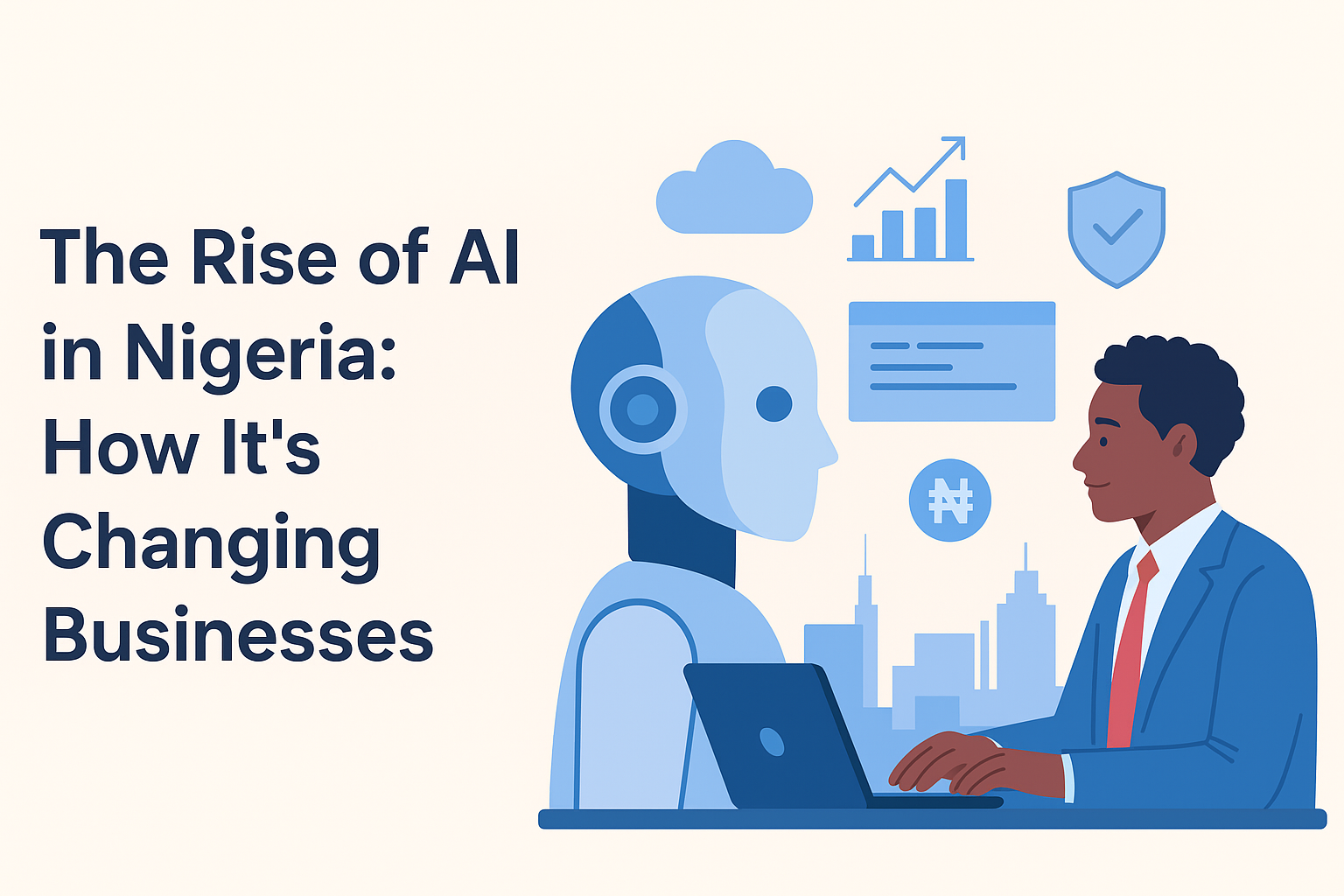Artificial Intelligence (AI) refers to the simulation of human intelligence by machines, particularly computer systems that can learn, reason, and self-correct. In recent years, Nigeria has witnessed a surge in the adoption of AI across sectors like finance, healthcare, agriculture, education, and retail. This wave of transformation is reshaping the country’s technological and business landscape.
Several factors drive this growth. Nigeria’s digital ecosystem continues to expand, fueled by widespread mobile adoption and internet penetration. As of 2023, mobile penetration exceeded 100%, enabling businesses and individuals to access digital tools at scale. This connectivity has created fertile ground for AI-powered solutions to improve services, streamline operations, and unlock new markets.
Government initiatives have also played a key role. By encouraging innovation, supporting startups, and fostering tech talent, policymakers are creating an environment where AI can thrive. Collaborations between public and private sectors are attracting investments into research and development, equipping Nigerian businesses to compete globally.
Additionally, the increasing availability of data is vital. The digitalisation of industries provides companies with vast amounts of information that can be analysed to develop AI-driven solutions tailored to local needs. This leads to better customer experiences, data-driven decision-making, and more efficient business models.
AI is not just a passing trend in Nigeria—it represents a long-term opportunity for growth, innovation, and global relevance.
Read also: Navigating the Landscape: Overcoming the Biggest Business Challenges in Nigeria
Impact of AI on Nigerian Businesses
AI adoption has already begun to transform key industries:
1. Finance
Financial institutions such as Interswitch use AI to enhance fraud detection, secure transactions, and deliver personalised customer experiences. Machine learning algorithms help analyse transaction patterns in real time, reducing risks and improving trust in Nigeria’s growing digital payments ecosystem.
2. Agriculture
Startups like Farmcrowdy are applying AI-driven analytics to help farmers make smarter decisions about crop management, pest control, and resource allocation. These precision farming techniques increase productivity while lowering costs and promoting sustainability.
3. Healthcare
Companies like 54gene leverage AI to improve genetic research, diagnostics, and disease detection. AI-powered tools enable faster, more accurate diagnoses and better access to healthcare, especially in underserved communities.
4. Retail and E-commerce
Platforms such as Jumia use AI to study consumer behaviour, optimise inventory, and personalise shopping experiences. By offering tailored recommendations and promotions, businesses enhance customer satisfaction and drive sales.
These success stories demonstrate that AI is revolutionising how Nigerian businesses operate, but challenges remain.
Challenges and Opportunities in AI Adoption
While the potential of AI is immense, Nigerian businesses face several obstacles:
Challenges
- Infrastructure Gaps: Limited internet reliability and outdated systems hinder AI integration.
- Skills Shortage: There is a lack of AI specialists, data scientists, and machine learning engineers in the local workforce.
- Regulatory Uncertainty: Nigeria currently lacks comprehensive policies around data privacy, ethical AI usage, and compliance, creating risks for businesses.
- High Costs: Implementing AI solutions can be expensive, particularly for small and medium-sized enterprises (SMEs).
Opportunities
- Job Creation: AI adoption will create demand for skilled professionals in data science, programming, and AI system management.
- Foreign Investment: By positioning itself as a hub for AI innovation, Nigeria can attract global investors and partners.
- Startup Growth: Local entrepreneurs can build AI-driven solutions to address unique Nigerian and African challenges, from healthcare access to financial inclusion.
- Global Competitiveness: With the right strategies, Nigerian companies can expand their influence in international markets by leveraging AI.
By addressing infrastructure, education, and regulation gaps, Nigeria can unlock AI’s full potential.
The Future of AI in Nigeria
The outlook for AI in Nigeria is promising. Emerging trends suggest deeper integration into:
- Healthcare through predictive analytics, telemedicine, and diagnostic automation.
- Agriculture via smart farming, yield forecasting, and climate adaptation tools.
- Finance with more secure transactions, personalised banking, and AI-driven microloans for SMEs.
To achieve this future, Nigeria must invest in:
- AI Education & Training: Universities and vocational institutions should expand AI-related programs.
- Research & Development: Increased funding for innovation hubs and labs.
- Policy Development: Clear guidelines for ethical AI use and data protection.
- Public-Private Partnerships: Collaborative initiatives to foster innovation and knowledge transfer.
With these strategies in place, Nigeria can emerge as a continental leader in AI innovation, boosting economic growth and improving quality of life.
Conclusion
AI is reshaping Nigeria’s business landscape in ways that will define the future of commerce, healthcare, agriculture, and finance. While challenges exist—such as infrastructure gaps, regulatory issues, and a skills shortage—the opportunities far outweigh the hurdles. By fostering innovation, investing in education, and creating supportive policies, Nigeria is poised to become a major player in the global AI economy.
For Nigerian businesses, adopting AI is no longer optional—it is a strategic necessity to stay competitive in 2025 and beyond.







